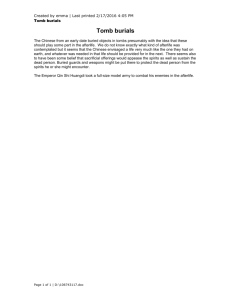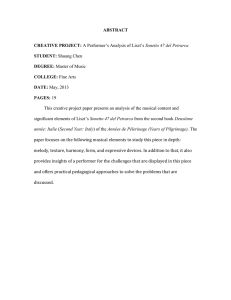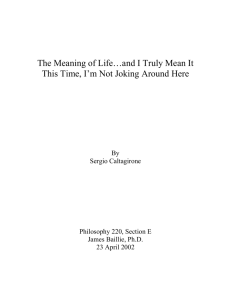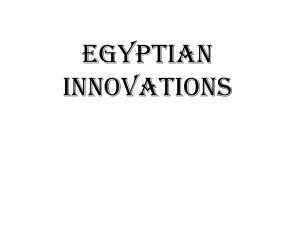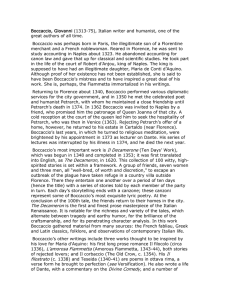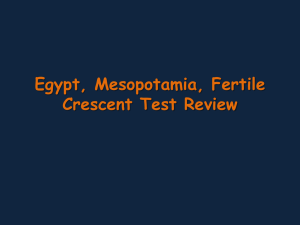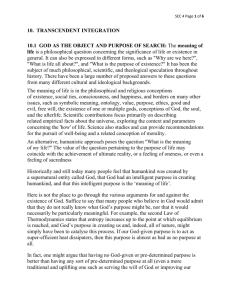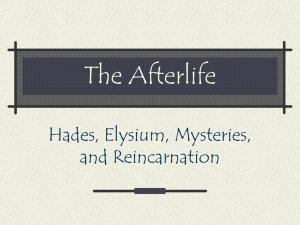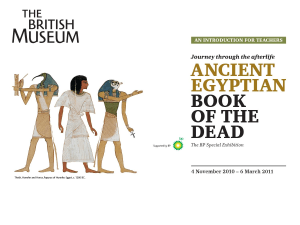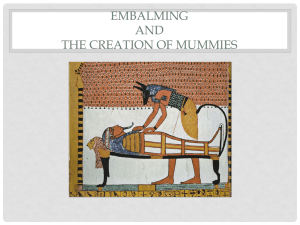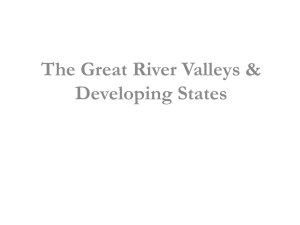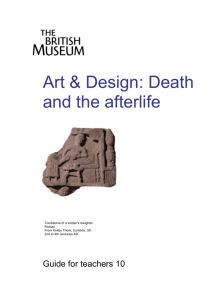AIRO Winter 2013
advertisement
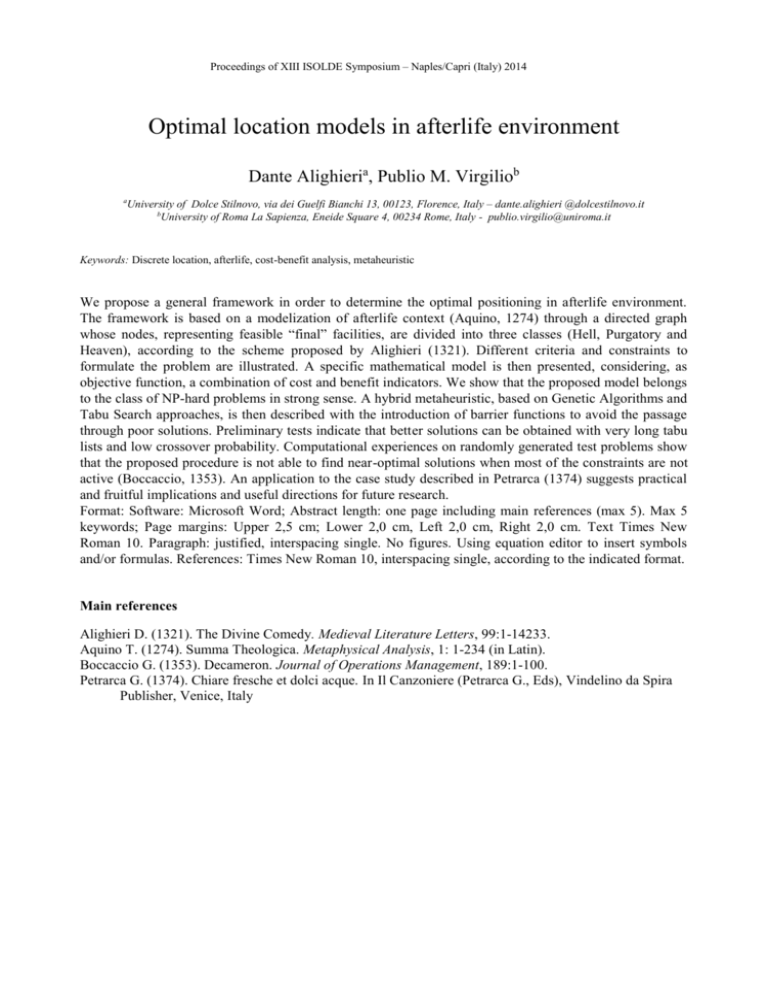
Proceedings of XIII ISOLDE Symposium – Naples/Capri (Italy) 2014 Optimal location models in afterlife environment Dante Alighieria, Publio M. Virgiliob University of Dolce Stilnovo, via dei Guelfi Bianchi 13, 00123, Florence, Italy – dante.alighieri @dolcestilnovo.it b University of Roma La Sapienza, Eneide Square 4, 00234 Rome, Italy - publio.virgilio@uniroma.it a Keywords: Discrete location, afterlife, cost-benefit analysis, metaheuristic We propose a general framework in order to determine the optimal positioning in afterlife environment. The framework is based on a modelization of afterlife context (Aquino, 1274) through a directed graph whose nodes, representing feasible “final” facilities, are divided into three classes (Hell, Purgatory and Heaven), according to the scheme proposed by Alighieri (1321). Different criteria and constraints to formulate the problem are illustrated. A specific mathematical model is then presented, considering, as objective function, a combination of cost and benefit indicators. We show that the proposed model belongs to the class of NP-hard problems in strong sense. A hybrid metaheuristic, based on Genetic Algorithms and Tabu Search approaches, is then described with the introduction of barrier functions to avoid the passage through poor solutions. Preliminary tests indicate that better solutions can be obtained with very long tabu lists and low crossover probability. Computational experiences on randomly generated test problems show that the proposed procedure is not able to find near-optimal solutions when most of the constraints are not active (Boccaccio, 1353). An application to the case study described in Petrarca (1374) suggests practical and fruitful implications and useful directions for future research. Format: Software: Microsoft Word; Abstract length: one page including main references (max 5). Max 5 keywords; Page margins: Upper 2,5 cm; Lower 2,0 cm, Left 2,0 cm, Right 2,0 cm. Text Times New Roman 10. Paragraph: justified, interspacing single. No figures. Using equation editor to insert symbols and/or formulas. References: Times New Roman 10, interspacing single, according to the indicated format. Main references Alighieri D. (1321). The Divine Comedy. Medieval Literature Letters, 99:1-14233. Aquino T. (1274). Summa Theologica. Metaphysical Analysis, 1: 1-234 (in Latin). Boccaccio G. (1353). Decameron. Journal of Operations Management, 189:1-100. Petrarca G. (1374). Chiare fresche et dolci acque. In Il Canzoniere (Petrarca G., Eds), Vindelino da Spira Publisher, Venice, Italy
